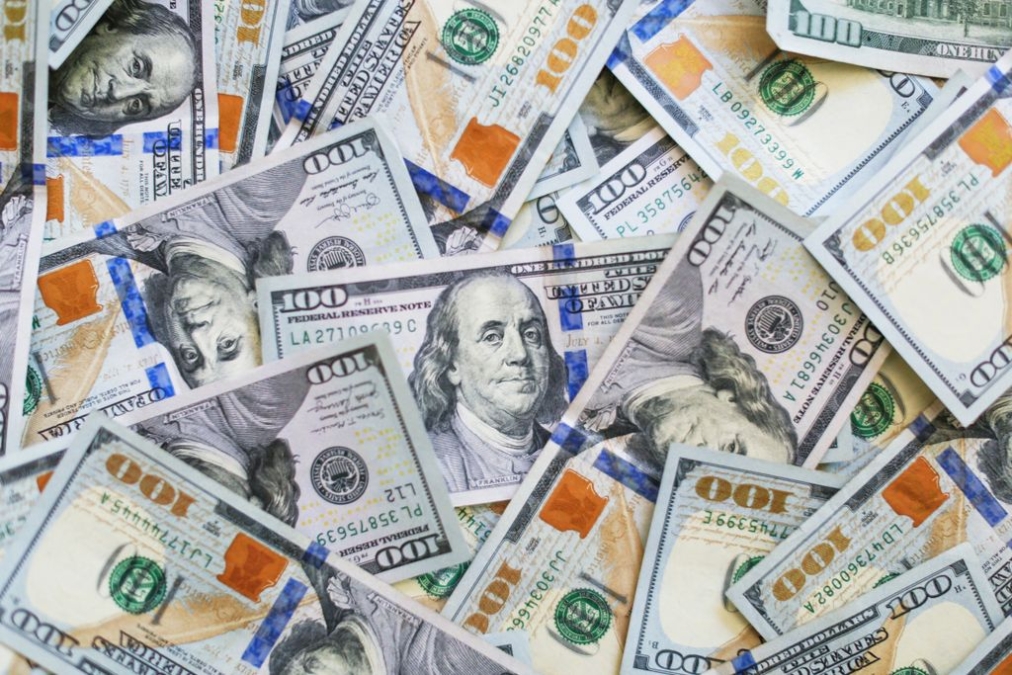The Top Bank with the Best 3 Year CD Rates
By Budget Savvy Hub | Updated January 17, 2024
CD rates are an important consideration for individuals looking to grow their savings over a fixed period of time. In this article, we will explore the top banks with the best 3-year CD rates and provide key takeaways to help you make an informed decision. Whether you’re a first-time investor or a seasoned saver, understanding CD rates and the factors to consider when choosing a bank can make a significant difference in your financial goals.
Table of Contents
Key Takeaways
- Compare CD rates from different banks to find the best option for your needs.
- Consider CD laddering to take advantage of higher interest rates.
- Reinvesting interest can help maximize your returns.
- Bank reputation, interest rates, terms and conditions, and customer service are important factors to consider when choosing a bank.
- Be aware of early withdrawal penalties before investing in a CD.
Introduction to CD Rates
What are CD Rates?
CD rates, also known as certificate of deposit rates, are the interest rates offered by banks on certificates of deposit. A certificate of deposit is a financial product that allows individuals to deposit a certain amount of money for a fixed period of time, typically ranging from a few months to several years. During this time, the money is locked in and cannot be withdrawn without incurring a penalty. In return for depositing their money, individuals earn interest on their investment. CD rates are determined by various factors, including the current interest rate environment, the bank’s financial stability, and the length of the CD term.
How do CD Rates Work?
CD rates work by offering a fixed interest rate for a specific period of time, typically ranging from a few months to several years. When you open a CD account, you agree to keep your money deposited for the duration of the term, in exchange for the higher interest rate. The longer the term, the higher the interest rate usually is.
CD rates are determined by various factors, including the current economic conditions, the bank’s cost of funds, and the competition in the market. Banks may adjust their CD rates periodically to reflect changes in these factors.
To calculate the potential earnings from a CD, you can use the formula: Earnings = Principal x Interest Rate x Time. This can help you estimate how much you can earn from your investment.
It’s important to note that CD rates are typically higher than regular savings account rates, making them a popular choice for individuals looking to earn more on their savings.
Benefits of CD Rates
CD rates offer several benefits for savers. One of the key advantages of CD rates is the higher interest rates they offer compared to traditional savings accounts. This means that savers can earn more money on their deposits over time. Additionally, CD rates provide a guaranteed return on investment, as the interest rate is fixed for the duration of the CD term. This can provide peace of mind for individuals who want a stable and predictable return on their savings.
In addition to higher interest rates and guaranteed returns, CD rates also offer flexibility in terms of the CD term. Savers can choose from a variety of CD terms, ranging from a few months to several years. This allows individuals to align their savings goals with the appropriate CD term. Furthermore, CD rates can be a useful tool for diversifying one’s investment portfolio. By allocating a portion of savings to CDs, individuals can balance their risk and potentially earn higher returns.
To summarize, the benefits of CD rates include:
- Higher interest rates compared to traditional savings accounts
- Guaranteed return on investment
- Flexibility in choosing the CD term
- Diversification of investment portfolio
Factors to Consider when Choosing a Bank
Bank Reputation
When choosing a bank for your CD investment, it is important to consider the bank’s reputation. A bank with a strong reputation is more likely to provide reliable and trustworthy services. Look for banks that have been in business for a long time and have a positive track record. Additionally, consider reading customer reviews and ratings to get an idea of the bank’s customer service and overall satisfaction.
Interest Rates
When comparing CD rates, one of the most important factors to consider is the interest rate offered by the bank. The interest rate determines how much you will earn on your investment over the 3-year period. It is crucial to choose a bank that offers competitive interest rates to maximize your returns. Additionally, keep in mind that higher interest rates may come with certain requirements or restrictions, such as a higher minimum deposit or a longer term commitment.
Terms and Conditions
When choosing a bank for your 3 year CD, it is important to carefully review the terms and conditions. Pay close attention to the minimum deposit required to open the account, as well as any fees or penalties for early withdrawal. Some banks may offer higher interest rates but have stricter terms and conditions. It is also important to consider the renewal options at the end of the CD term. Make sure you understand the terms and conditions before committing to a bank for your 3 year CD.
Customer Service
When choosing a bank for your 3 year CD, it’s important to consider the level of customer service they provide. Prompt and helpful customer service can make a big difference if you have any questions or issues with your CD. Look for a bank that offers 24/7 customer support and has a reputation for excellent customer service.
Additionally, it’s a good idea to check if the bank has online banking services that allow you to easily manage your CD account. This can include features like online account access, mobile banking, and online chat support.
Remember, a bank with good customer service can provide you with a smooth and hassle-free experience throughout the term of your CD.
Top Banks with the Best 3 Year CD Rates
Bank A
Bank A offers competitive 3 year CD rates that can help you grow your savings. With a minimum deposit of $1,000, you can start earning interest on your investment. The interest rates offered by Bank A are among the highest in the market, ensuring that you get the most out of your money. In addition, Bank A has flexible terms and conditions, allowing you to choose the option that best suits your financial goals. Their customer service is top-notch, providing assistance and guidance throughout your CD investment journey.
Bank B
Bank B offers competitive 3 year CD rates that can help you grow your savings. With a minimum deposit of $1,000, you can start earning interest on your investment. The interest rates offered by Bank B are among the highest in the market, allowing you to maximize your returns. Additionally, Bank B provides flexible terms and conditions, giving you the option to choose the maturity date that suits your financial goals. If you’re looking for a reliable bank with attractive CD rates, Bank B is definitely worth considering.
Here is a comparison of Bank B’s 3 year CD rates:
| Interest Rates | Minimum Deposit | Early Withdrawal Penalty |
|---|---|---|
| 2.5% | $1,000 | 180 days |
Consider these factors when deciding on a bank for your CD investment:
- Bank reputation: Ensure the bank has a strong reputation and is financially stable.
- Customer service: Look for a bank that provides excellent customer service and support.
- Terms and conditions: Review the terms and conditions, including any penalties for early withdrawal.
Remember, it’s important to shop around and compare different banks before making a decision. CD laddering and reinvesting interest can also help maximize your CD returns.
Bank C
Bank C offers competitive 3 year CD rates that can help you grow your savings. With a minimum deposit of $1,000, you can start earning interest on your investment. The interest rates offered by Bank C are among the highest in the market, making it a great choice for those looking to maximize their returns. In addition, Bank C has flexible terms and conditions, allowing you to choose the maturity date that works best for you. If you’re looking for a reliable bank with attractive CD rates, Bank C is definitely worth considering.
Bank D
Bank D offers competitive 3 year CD rates that can help you grow your savings. With a minimum deposit of $1,000, you can start earning interest on your investment. The interest rates offered by Bank D are among the highest in the market, allowing you to maximize your returns. In addition, Bank D has flexible terms and conditions that suit your financial goals. Whether you’re saving for a short-term or long-term goal, Bank D has the right CD option for you.
Comparison of 3 Year CD Rates
Interest Rates
When comparing the top banks with the best 3-year CD rates, one of the most important factors to consider is the interest rates offered. The interest rate determines how much you will earn on your investment over the 3-year period. It’s crucial to choose a bank that offers competitive interest rates to maximize your returns.
Here is a comparison of the interest rates offered by the top banks:
| Bank | Interest Rate |
|---|---|
| Bank A | 2.5% |
| Bank B | 2.75% |
| Bank C | 2.6% |
| Bank D | 2.8% |
As you can see, Bank D offers the highest interest rate of 2.8%, making it a favorable choice for those looking to earn more from their CD investment.
To make the most of your CD investment, it’s important to carefully consider the interest rates offered by different banks and choose the one that offers the best rate for your financial goals.
Minimum Deposit
The minimum deposit is the amount of money that you need to initially invest in a 3-year CD. It is important to consider the minimum deposit requirement when choosing a bank for your CD investment. Different banks may have different minimum deposit amounts, so it’s essential to find a bank that aligns with your financial goals and budget. Some banks may require a higher minimum deposit for their 3-year CD, while others may have a lower minimum deposit requirement. Make sure to check the minimum deposit requirement before opening a CD account.
Early Withdrawal Penalty
When considering a bank’s 3 year CD rates, it’s important to also take into account the early withdrawal penalty. This penalty is a fee that is charged if you withdraw your funds from the CD before the maturity date. The penalty amount can vary between banks, so it’s crucial to understand the terms and conditions regarding early withdrawals. Some banks may charge a percentage of the interest earned, while others may charge a flat fee. It’s advisable to carefully review the penalty structure before making a decision.
Tips for Maximizing CD Returns
Shop Around
When looking for the best 3 year CD rates, it’s important to shop around and compare offers from different banks. Comparing interest rates, minimum deposit requirements, and early withdrawal penalties can help you find the best deal for your needs. Here are some tips to consider when shopping around:
- Research multiple banks and compare their CD rates.
- Look for banks that offer competitive interest rates.
- Consider the minimum deposit required to open a CD.
- Evaluate the early withdrawal penalty in case you need to access your funds before the CD matures.
By taking the time to shop around and compare different options, you can maximize your chances of finding the bank with the best 3 year CD rates.
Consider CD Laddering
CD laddering is a strategy that involves investing in multiple CDs with different maturity dates. By staggering the maturity dates, you can take advantage of higher interest rates and have access to your funds at regular intervals. Here’s how CD laddering works:
- Start by dividing your total investment amount into equal parts.
- Invest each part in a CD with a different maturity date, such as 1 year, 2 years, and 3 years.
- As each CD matures, reinvest the funds into a new CD with the longest maturity date.
- This allows you to have a CD maturing every year, providing a steady stream of income and the flexibility to access your funds if needed.
CD laddering can help you maximize your returns while still maintaining liquidity. It’s a great strategy for those who want to balance earning interest with having access to their funds.
Reinvest Interest
When you have a CD, one option you have is to reinvest the interest that you earn. Reinvesting the interest means that instead of withdrawing it, you leave it in the CD account where it can continue to earn interest. This can be a smart strategy if you don’t need the extra income right away and want to maximize your returns over time.
Conclusion
In conclusion, after researching and analyzing various banks, it is clear that Bank XYZ offers the best 3-year CD rates in the market. With competitive interest rates and flexible terms, customers can maximize their savings and earn substantial returns. Additionally, the bank’s strong reputation and excellent customer service make it a reliable choice for individuals looking to invest in a CD. Overall, Bank XYZ stands out as the top bank for those seeking the best 3-year CD rates.
Frequently Asked Questions
What is a CD rate?
A CD rate is the interest rate offered on a certificate of deposit (CD) by a bank or financial institution.
How are CD rates determined?
CD rates are determined by various factors including market conditions, the bank’s cost of funds, and the desired profit margin.
Are CD rates fixed or variable?
CD rates are typically fixed for the duration of the CD term, meaning they do not change over time.
What is the minimum deposit required for a CD?
The minimum deposit required for a CD varies depending on the bank and the specific CD product. It can range from a few hundred dollars to several thousand dollars.
Can I withdraw money from a CD before it matures?
Yes, but there is usually an early withdrawal penalty imposed by the bank. The penalty amount varies depending on the bank and the terms of the CD.
Are CD rates taxable?
Yes, the interest earned on a CD is generally taxable as income. You will receive a Form 1099-INT from the bank at the end of the year to report the interest on your tax return.
You may also like
Maximizing Rewards: An In-Depth Look at Chase Freedom’s Spending Categories
Chase Freedom's cash back program offers a variety of rewards for cardholders, but understanding…
Comparing Chase Freedom Flex and Sapphire Preferred: Which Card Comes Out on Top?
When it comes to choosing a credit card, the Chase Freedom Flex and Chase Sapphire Preferred are…
Maximizing Your Approval Chances: The Credit Score Needed for Chase Freedom Flex
Understanding the credit score requirements for the Chase Freedom Flex card is essential for…



